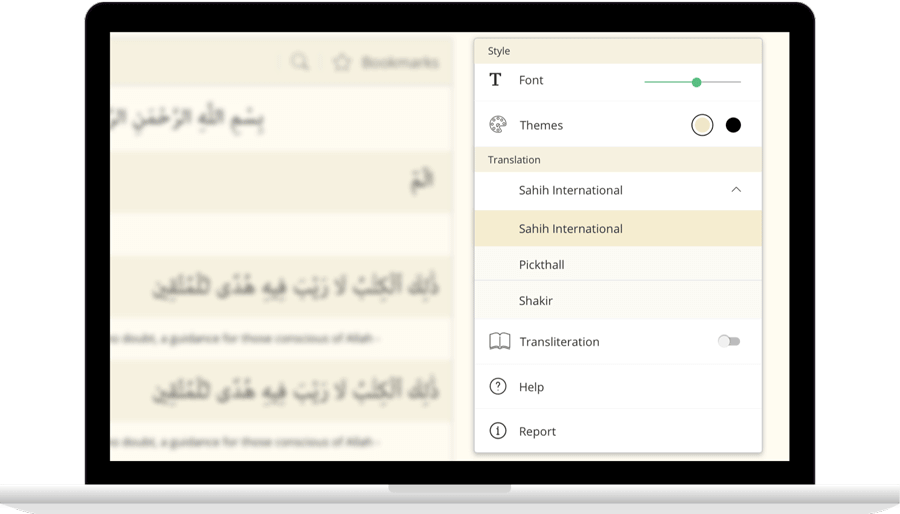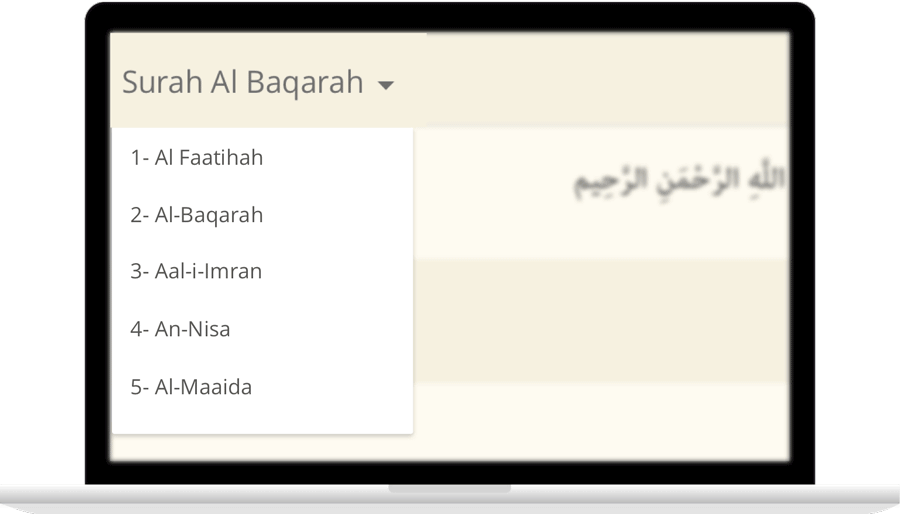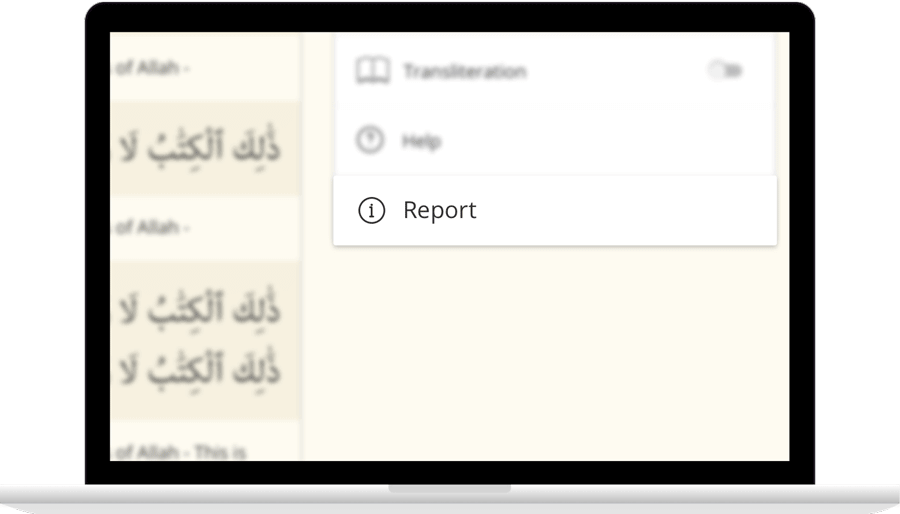Baca Surah Nisadengan terjemahan
وَلَا تُؤْتُوا۟ ٱلسُّفَهَآءَ أَمْوَٰلَكُمُ ٱلَّتِى جَعَلَ ٱللَّهُ لَكُمْ قِيَٰمًا وَٱرْزُقُوهُمْ فِيهَا وَٱكْسُوهُمْ وَقُولُوا۟ لَهُمْ قَوْلًا مَّعْرُوفًا
Wala tutoo alssufahaa amwalakumu allatee jaAAala Allahu lakum qiyaman waorzuqoohum feeha waoksoohum waqooloo lahum qawlan maAAroofan
And do not give the weak-minded your property, which Allah has made a means of sustenance for you, but provide for them with it and clothe them and speak to them words of appropriate kindness.
وَٱبْتَلُوا۟ ٱلْيَتَٰمَىٰ حَتَّىٰٓ إِذَا بَلَغُوا۟ ٱلنِّكَاحَ فَإِنْ ءَانَسْتُم مِّنْهُمْ رُشْدًا فَٱدْفَعُوٓا۟ إِلَيْهِمْ أَمْوَٰلَهُمْ وَلَا تَأْكُلُوهَآ إِسْرَافًا وَبِدَارًا أَن يَكْبَرُوا۟ وَمَن كَانَ غَنِيًّا فَلْيَسْتَعْفِفْ وَمَن كَانَ فَقِيرًا فَلْيَأْكُلْ بِٱلْمَعْرُوفِ فَإِذَا دَفَعْتُمْ إِلَيْهِمْ أَمْوَٰلَهُمْ فَأَشْهِدُوا۟ عَلَيْهِمْ وَكَفَىٰ بِٱللَّهِ حَسِيبًا
Waibtaloo alyatama hatta itha balaghoo alnnikaha fain anastum minhum rushdan faidfaAAoo ilayhim amwalahum wala takulooha israfan wabidaran an yakbaroo waman kana ghaniyyan falyastaAAfif waman kana faqeeran falyakul bialmaAAroofi faitha dafaAAtum ilayhim amwalahum faashhidoo AAalayhim wakafa biAllahi haseeban
And test the orphans [in their abilities] until they reach marriageable age. Then if you perceive in them sound judgement, release their property to them. And do not consume it excessively and quickly, [anticipating] that they will grow up. And whoever, [when acting as guardian], is self-sufficient should refrain [from taking a fee]; and whoever is poor - let him take according to what is acceptable. Then when you release their property to them, bring witnesses upon them. And sufficient is Allah as Accountant.
لِّلرِّجَالِ نَصِيبٌ مِّمَّا تَرَكَ ٱلْوَٰلِدَانِ وَٱلْأَقْرَبُونَ وَلِلنِّسَآءِ نَصِيبٌ مِّمَّا تَرَكَ ٱلْوَٰلِدَانِ وَٱلْأَقْرَبُونَ مِمَّا قَلَّ مِنْهُ أَوْ كَثُرَ نَصِيبًا مَّفْرُوضًا
Lilrrijali naseebun mimma taraka alwalidani waalaqraboona walilnnisai naseebun mimma taraka alwalidani waalaqraboona mimma qalla minhu aw kathura naseeban mafroodan
For men is a share of what the parents and close relatives leave, and for women is a share of what the parents and close relatives leave, be it little or much - an obligatory share.
وَإِذَا حَضَرَ ٱلْقِسْمَةَ أُو۟لُوا۟ ٱلْقُرْبَىٰ وَٱلْيَتَٰمَىٰ وَٱلْمَسَٰكِينُ فَٱرْزُقُوهُم مِّنْهُ وَقُولُوا۟ لَهُمْ قَوْلًا مَّعْرُوفًا
Waitha hadara alqismata oloo alqurba waalyatama waalmasakeenu faorzuqoohum minhu waqooloo lahum qawlan maAAroofan
And when [other] relatives and orphans and the needy are present at the [time of] division, then provide for them [something] out of the estate and speak to them words of appropriate kindness.
وَلْيَخْشَ ٱلَّذِينَ لَوْ تَرَكُوا۟ مِنْ خَلْفِهِمْ ذُرِّيَّةً ضِعَٰفًا خَافُوا۟ عَلَيْهِمْ فَلْيَتَّقُوا۟ ٱللَّهَ وَلْيَقُولُوا۟ قَوْلًا سَدِيدًا
Walyakhsha allatheena law tarakoo min khalfihim thurriyyatan diAAafan khafoo AAalayhim falyattaqoo Allaha walyaqooloo qawlan sadeedan
And let those [executors and guardians] fear [injustice] as if they [themselves] had left weak offspring behind and feared for them. So let them fear Allah and speak words of appropriate justice.
إِنَّ ٱلَّذِينَ يَأْكُلُونَ أَمْوَٰلَ ٱلْيَتَٰمَىٰ ظُلْمًا إِنَّمَا يَأْكُلُونَ فِى بُطُونِهِمْ نَارًا وَسَيَصْلَوْنَ سَعِيرًا
Inna allatheena yakuloona amwala alyatama thulman innama yakuloona fee butoonihim naran wasayaslawna saAAeeran
Indeed, those who devour the property of orphans unjustly are only consuming into their bellies fire. And they will be burned in a Blaze.
يُوصِيكُمُ ٱللَّهُ فِىٓ أَوْلَٰدِكُمْ لِلذَّكَرِ مِثْلُ حَظِّ ٱلْأُنثَيَيْنِ فَإِن كُنَّ نِسَآءً فَوْقَ ٱثْنَتَيْنِ فَلَهُنَّ ثُلُثَا مَا تَرَكَ وَإِن كَانَتْ وَٰحِدَةً فَلَهَا ٱلنِّصْفُ وَلِأَبَوَيْهِ لِكُلِّ وَٰحِدٍ مِّنْهُمَا ٱلسُّدُسُ مِمَّا تَرَكَ إِن كَانَ لَهُۥ وَلَدٌ فَإِن لَّمْ يَكُن لَّهُۥ وَلَدٌ وَوَرِثَهُۥٓ أَبَوَاهُ فَلِأُمِّهِ ٱلثُّلُثُ فَإِن كَانَ لَهُۥٓ إِخْوَةٌ فَلِأُمِّهِ ٱلسُّدُسُ مِنۢ بَعْدِ وَصِيَّةٍ يُوصِى بِهَآ أَوْ دَيْنٍ ءَابَآؤُكُمْ وَأَبْنَآؤُكُمْ لَا تَدْرُونَ أَيُّهُمْ أَقْرَبُ لَكُمْ نَفْعًا فَرِيضَةً مِّنَ ٱللَّهِ إِنَّ ٱللَّهَ كَانَ عَلِيمًا حَكِيمًا
Yooseekumu Allahu fee awladikum lilththakari mithlu haththi alonthayayni fain kunna nisaan fawqa ithnatayni falahunna thulutha ma taraka wain kanat wahidatan falaha alnnisfu waliabawayhi likulli wahidin minhuma alssudusu mimma taraka in kana lahu waladun fain lam yakun lahu waladun wawarithahu abawahu faliommihi alththuluthu fain kana lahu ikhwatun faliommihi alssudusu min baAAdi wasiyyatin yoosee biha aw daynin abaokum waabnaokum la tadroona ayyuhum aqrabu lakum nafAAan fareedatan mina Allahi inna Allaha kana AAaleeman hakeeman
Allah instructs you concerning your children: for the male, what is equal to the share of two females. But if there are [only] daughters, two or more, for them is two thirds of one's estate. And if there is only one, for her is half. And for one's parents, to each one of them is a sixth of his estate if he left children. But if he had no children and the parents [alone] inherit from him, then for his mother is one third. And if he had brothers [or sisters], for his mother is a sixth, after any bequest he [may have] made or debt. Your parents or your children - you know not which of them are nearest to you in benefit. [These shares are] an obligation [imposed] by Allah. Indeed, Allah is ever Knowing and Wise.
وَلَكُمْ نِصْفُ مَا تَرَكَ أَزْوَٰجُكُمْ إِن لَّمْ يَكُن لَّهُنَّ وَلَدٌ فَإِن كَانَ لَهُنَّ وَلَدٌ فَلَكُمُ ٱلرُّبُعُ مِمَّا تَرَكْنَ مِنۢ بَعْدِ وَصِيَّةٍ يُوصِينَ بِهَآ أَوْ دَيْنٍ وَلَهُنَّ ٱلرُّبُعُ مِمَّا تَرَكْتُمْ إِن لَّمْ يَكُن لَّكُمْ وَلَدٌ فَإِن كَانَ لَكُمْ وَلَدٌ فَلَهُنَّ ٱلثُّمُنُ مِمَّا تَرَكْتُم مِّنۢ بَعْدِ وَصِيَّةٍ تُوصُونَ بِهَآ أَوْ دَيْنٍ وَإِن كَانَ رَجُلٌ يُورَثُ كَلَٰلَةً أَوِ ٱمْرَأَةٌ وَلَهُۥٓ أَخٌ أَوْ أُخْتٌ فَلِكُلِّ وَٰحِدٍ مِّنْهُمَا ٱلسُّدُسُ فَإِن كَانُوٓا۟ أَكْثَرَ مِن ذَٰلِكَ فَهُمْ شُرَكَآءُ فِى ٱلثُّلُثِ مِنۢ بَعْدِ وَصِيَّةٍ يُوصَىٰ بِهَآ أَوْ دَيْنٍ غَيْرَ مُضَآرٍّ وَصِيَّةً مِّنَ ٱللَّهِ وَٱللَّهُ عَلِيمٌ حَلِيمٌ
Walakum nisfu ma taraka azwajukum in lam yakun lahunna waladun fain kana lahunna waladun falakumu alrrubuAAu mimma tarakna min baAAdi wasiyyatin yooseena biha aw daynin walahunna alrrubuAAu mimma taraktum in lam yakun lakum waladun fain kana lakum waladun falahunna alththumunu mimma taraktum min baAAdi wasiyyatin toosoona biha aw daynin wain kana rajulun yoorathu kalalatan awi imraatun walahu akhun aw okhtun falikulli wahidin minhuma alssudusu fain kanoo akthara min thalika fahum shurakao fee alththuluthi min baAAdi wasiyyatin yoosa biha aw daynin ghayra mudarrin wasiyyatan mina Allahi waAllahu AAaleemun haleemun
And for you is half of what your wives leave if they have no child. But if they have a child, for you is one fourth of what they leave, after any bequest they [may have] made or debt. And for the wives is one fourth if you leave no child. But if you leave a child, then for them is an eighth of what you leave, after any bequest you [may have] made or debt. And if a man or woman leaves neither ascendants nor descendants but has a brother or a sister, then for each one of them is a sixth. But if they are more than two, they share a third, after any bequest which was made or debt, as long as there is no detriment [caused]. [This is] an ordinance from Allah, and Allah is Knowing and Forbearing.
تِلْكَ حُدُودُ ٱللَّهِ وَمَن يُطِعِ ٱللَّهَ وَرَسُولَهُۥ يُدْخِلْهُ جَنَّٰتٍ تَجْرِى مِن تَحْتِهَا ٱلْأَنْهَٰرُ خَٰلِدِينَ فِيهَا وَذَٰلِكَ ٱلْفَوْزُ ٱلْعَظِيمُ
Tilka hudoodu Allahi waman yutiAAi Allaha warasoolahu yudkhilhu jannatin tajree min tahtiha alanharu khalideena feeha wathalika alfawzu alAAatheemu
These are the limits [set by] Allah, and whoever obeys Allah and His Messenger will be admitted by Him to gardens [in Paradise] under which rivers flow, abiding eternally therein; and that is the great attainment.
وَمَن يَعْصِ ٱللَّهَ وَرَسُولَهُۥ وَيَتَعَدَّ حُدُودَهُۥ يُدْخِلْهُ نَارًا خَٰلِدًا فِيهَا وَلَهُۥ عَذَابٌ مُّهِينٌ
Waman yaAAsi Allaha warasoolahu wayataAAadda hudoodahu yudkhilhu naran khalidan feeha walahu AAathabun muheenun
And whoever disobeys Allah and His Messenger and transgresses His limits - He will put him into the Fire to abide eternally therein, and he will have a humiliating punishment.
Contact Us

Thanks for reaching out.
We'll get back to you soon.









